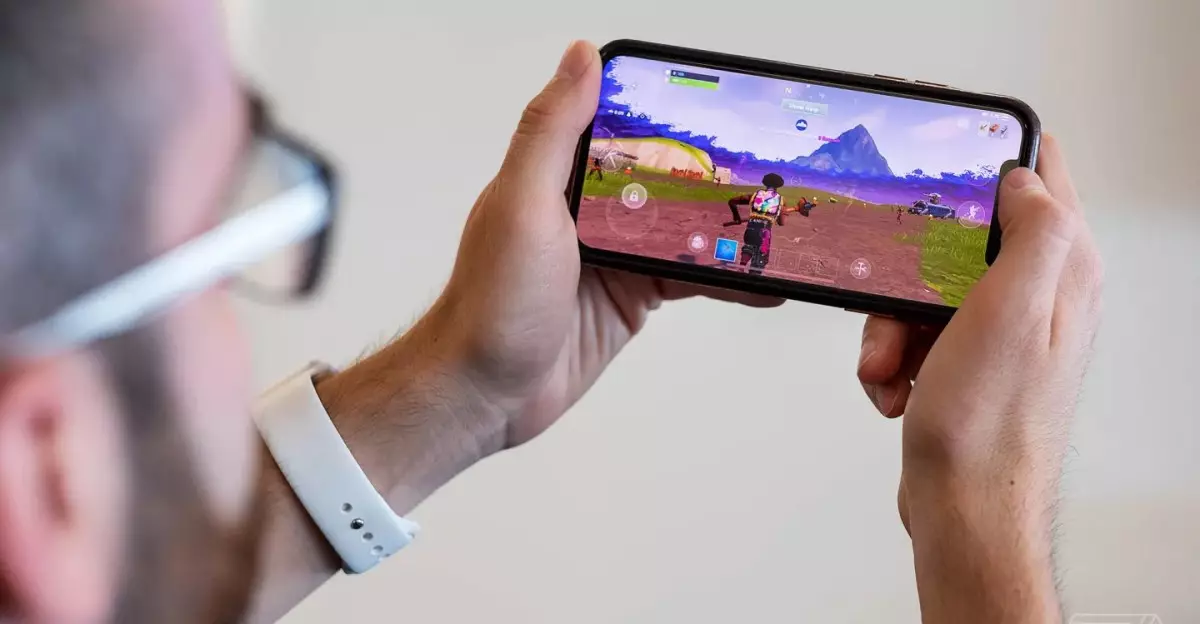Epic Games has successfully managed to reinstate Fortnite onto the iOS App Store nearly five years after its controversial removal. This monumental shift in the gaming landscape comes as a result of Epic’s relentless battle against Apple’s perceived monopolistic practices concerning app distribution and in-app purchases. The return of Fortnite is not merely an update in the app store; it marks the culmination of a legal saga that has sparked debates across the gaming industry and beyond, reflecting deeper tensions between developers and platform holders.
The saga began when Epic Games daringly introduced its own payment system within Fortnite, directly challenging Apple’s payment policies, which mandated a hefty 30% commission on purchases made through the App Store. The ensuing legal battle, encapsulated in the high-profile Epic Games v. Apple case, has drawn the attention of regulators, developers, and gamers alike. What began as a simple game update evolved into a significant cultural clash, provoking discussions on fairness, competition, and developer rights.
Legal Ramifications and Industry Implications
This litigation has far-reaching ramifications that extend beyond Fortnite itself. With a court ruling favoring Epic Games that revolved around Apple’s restrictive practices, the implications resonate deeply within the tech ecosystem. Apple is now mandated to allow alternative payment options, reshaping the way apps are monetized on its platform. This sets a precedent that could potentially weaken Apple’s app store dominance and embolden other developers to question or challenge similar restrictions they face.
TikTok, Spotify, and other major applications have been closely monitoring the situation, particularly regarding how they are taxed for transactions within their platforms. The outcome of Epic’s battle signals to developers that they can challenge the status quo, and it may invigorate a wave of app-related litigations that could fundamentally alter the mobile app business model.
Epic’s Strategic Maneuvers
Epic, under the stewardship of CEO Tim Sweeney, has tactically maneuvered throughout this process. The company’s proactive approach not only involves legal action but strategic game promotions aimed at rekindling player interest. For instance, with Fortnite’s re-entry into the iOS marketplace, Epic is rolling out lucrative incentives for players. The 20% return in Epic Rewards for those opting to use its own payment system is more than a marketing gimmick; it’s a calculated move to incentivize players to bypass Apple’s payment system, thus reinforcing Epic’s position while simultaneously courting player loyalty.
Moreover, the introduction of a new game season—thematically aligned with popular culture, such as Star Wars—serves to heighten excitement and engagement. These strategies illustrate how Epic effectively harnesses popular media to bolster its brand while also drawing players back into the gaming ecosystem, making its return feel like a celebration rather than a simple reinstallation.
A Future Redefined by Choice and Accessibility
The return of Fortnite doesn’t just signify a win for Epic; it embodies a pivotal moment in the ongoing struggle for developer rights and consumer choice. Apple’s strategy has always staked its legitimacy on the promise of security and quality control. However, the court’s decision and Epic’s counter-move exemplify an evolving landscape that calls this paradigm into question.
As developers, players, and advocates for fair practices observe this developing situation, there is a palpable sense of a long-lasting cultural shift in the gaming industry. Consumers are increasingly drawn to platforms that offer transparency and choices in how they spend their money. Should Apple continue to uphold its previous practices without adaptation, it risks alienating its user base, which is becoming more educated and vocal about its preferences.
In the grand ecosystem of gaming and digital distribution, Fortnite’s return is not an isolated event. It represents a larger call for change and an awakening of sorts for millions of users who demand fairness, choice, and respect from the mega-corporations that command their digital experiences. As it stands, the gaming industry watches closely as this transformative chapter unfolds, setting the stage for the next era of mobile gaming and app distribution.


Leave a Reply